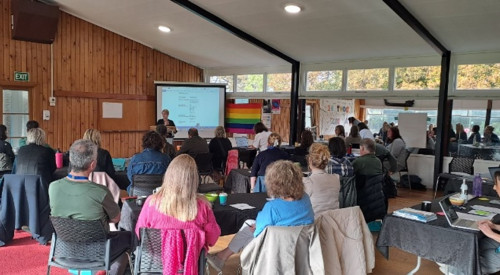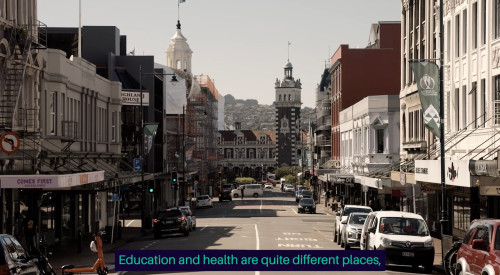"If you’ve never been in struggle, you’ll never understand the students here"
Case study 30 May 2022

This story was captured from a Tūturu case study in an evaluation by the New Zealand Council for Educational Research - read the full report.
Students who participated in Tūturu told us that having the “right” counsellors in schools is really important. If they don't feel they can relate to a counsellor, they are less likely to attend sessions.
Trust is key and it is difficult for students to build trusting relationships with people they felt didn’t understand them or have a shared set of experiences.
Factors such as age, gender, and ethnicity were very important for students. They wanted counsellors who were as similar as possible to their own situation.
Quotes from students
Student A: "The way I see it, if you’ve never been in a struggle, you’ll never understand the students here."
Student B: "I haven’t been in a situation [where I needed support]. But I would prefer someone I could relate to, easygoing, someone who’s been through the struggle as well. A young Māori lady, that’d be cool."
Student A: "With boys, we tend to just block off everybody. Men are tough apparently. I kind of think that needs to stop. It’s like, come on, everybody cries!"
Student C: "I notice lots of Māori don’t like to talk about their feelings to other people. My main support is my mum. But otherwise, I don’t tell anybody else. You usually just have that one person to go to. No offence to the guidance counsellor here, but I find it hard to relate to her because she’s older and ‘wiser’. It’s easier to relate to someone your age. Someone who is more chilled."
How the Tūturu approach helped students build trust in their school counsellor
Students identified that their peers might need support but did not want to talk to people they didn’t know. So counsellors need to be more visible in the school and not just introduce themselves at assemblies.
School leaders had also identified similar barriers. At this particular school, as part of the Tūturu approach, the leaders developed a strategy to make the most out of their service providers, by having counsellors go into form classes so they could make connections with students.
The school lead explains: “We realised that teachers weren’t referring students, or when they were referred, students didn’t want to talk with people they didn’t know. […] We started getting our health provider contact to work with all our students all the time. We’ve said please just be there all the time as just another guy who hangs out with them."
"He just merges in and so they build relationships so that if somebody is then telling them to go to him and talk, they will."
Recent news

Supporting Students: A Wellbeing Lens – Dunedin Tūturu Whole School Approach Day 2024
2 July 2024
In May, schools from throughout Otago and staff from orgs such as Te Whatu Ora, NZ Police and MOE gathered to hear from a range of speakers on how best to meet the needs of secondary school students.
How can schools better handle student mental health and wellbeing? Insights from NZCER's secondary principals' survey
25 March 2024
In November 2023, the results of a 2022 nationwide survey of secondary school principals in Aotearoa revealed that the top issue they ranked dealing with at school was providing support for students grappling with mental health or wellbeing issues.

Tūturu in Ōtepoti Dunedin
19 February 2024
Whakaata Tohu Tohu | Mirror Services, works with multiple schools in Ōtepoti.